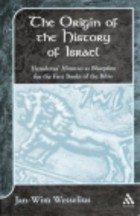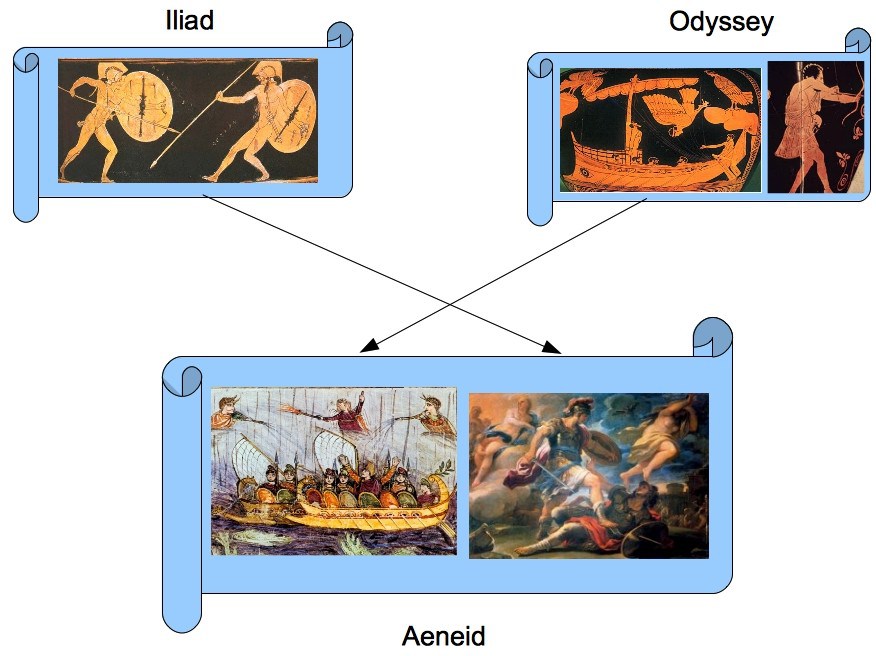I am copying here a comment that Philippe Wajdenbaum made in relation to another post. (I have reformatted the original.)
Many thanks for this post, and for the quality of your blog. Russell Gmirkin’s “Plato and the Creation of the Hebrew Bible” is a most important book that will elicit a paradigm shift in biblical studies, as seen in its current positive reception.
Here are some of my arguments for Genesis-Kings’ unity:
In “Argonauts of the Desert”, as well as in several articles, I have proposed that Genesis-Kings (also called the Primary History) is the work of a single author, or at least the same team of scholars, who took inspiration from Greek classical texts such as Homer’s Iliad and Odyssey. See also:
- Thomas L. Brodie, “Genesis as Dialogue”, 2001;
- Bruce Louden, “Homer’s Odyssey and the Near-East”, 2011,
- Herodotus’ Histories (as per Jan-Wim Wesselius, “The Origin of the History of Israel”, 2002), [Link is to Vridar posts on this book]
- and Plato’s dialogues, most notably the Laws (on an idea by Yaakov Kupitz).
The demonstration of Genesis-Kings’ literary unity relies first on its consistency as a continuous narrative, as shown by Spinoza (“Theological and Political Treatise”, chapter 8), and second on the distribution of its Greek-borrowed material, shown by Wesselius regarding the use of Herodotus. Whereas both placed this redaction during the Persian period, Russell Gmirkin has convincingly shown in “Berossus and Genesis, Manetho and Exodus” (2006), that the Hellenistic era offers the most plausible period for Judean and Samaritan scholars to have had access to and emulated Greek sources, most probably in the Library of Alexandria.
In my article “From Plato to Moses: Genesis-Kings as a Platonic Epic” (in “Biblical Interpretation Beyond Historicity: Changing Perspectives 7”, edited by I. Hjelm and Thomas L. Thompson, 2016, also available on the Bible and Interpretation website), I have pointed out that
- the Pentateuch seems to borrow significantly from the Odyssey (the wanderings of the Patriarchs and Israel, Joseph’s story as a rewrite of Odysseus’ return to Ithaca),
- whereas Joshua, Judges, Samuel and Kings seem to borrow predominantly from the Iliad (the many battle scenes, especially in 1-2 Samuel).
Yet, there are motifs from the Iliad in the Pentateuch and from the Odyssey in Joshua-Kings. This distribution of Homeric motifs interestingly corresponds to how Virgil modelled the first six books of the Aeneid on the Odyssey, and the six next books on the Iliad. In my opinion, this logic in the distribution of themes can be observed regarding most of the Greek sources used by the author of Genesis-Kings (such as the Greek mythical cycles of the Argonauts, Heracles, Thebes and the Trojan War), and tends to show its literary unity.
Regarding the use of Plato, I have tried to show that a “Platonic framework” encompasses Genesis-Kings. Genesis uses several myths from Plato about
- the creation of the world (Timaeus / Gen. 1),
- the split of a primordial androgynous human (Symposium / Gen. 2)
- and the Golden Age (Statesman / Gen. 3; combined with Hesiod’s story of Prometheus and Pandora).
The Exodus narrative,
the liberation of slaves by a reluctant leader who had been freed beforehand, seems an adaptation of Plato’s famous Cave Allegory in Republic 7 (combined with the story of Battus, the founder of Cyrene).
After receiving some of their divine laws, some of which are borrowed from Plato’s Laws, Moses and the Israelites perform a ritual for accepting these laws (Exod. 24) that seems borrowed from a similar ceremony in Plato’s Critias.
The confection of the Tabernacle’s furniture by a craftsman based on a divine model echoes Plato’s theory of imitation of divine types in Republic 10.
The book of Joshua narrates the foundation of the Ideal twelve-tribe state, with the division of the land by lot into twelve tribes and its subdivision into paternal plots of land, according to the model found in Numbers, which is itself based on Plato’s Laws.
Judges, Samuel and Kings depict the gradual downfall of this state, due to the increasing faults of Israel and Judah’s kings. This demise of a state that should have been ideal and eternal seems borrowed from Plato’s tale of Atlantis in Critias. Solomon’s riches and grandiose temple in Kings resemble that of Atlantis, and God’s decision to destroy Israel and Judah at the hands of its enemies echoes the fate of Atlantis, punished by Zeus because its kings neglected the divine laws with the passing of generations.
The final catastrophe of Jerusalem’s destruction by the Babylonians and the beginning of the Exile is reflected in Genesis’ narrative of the expulsion of Adam and Eve from Eden for disobeying the divine commandment, which seems the trace of a ring composition.
Best regards,
Philippe Wajdenbaum




